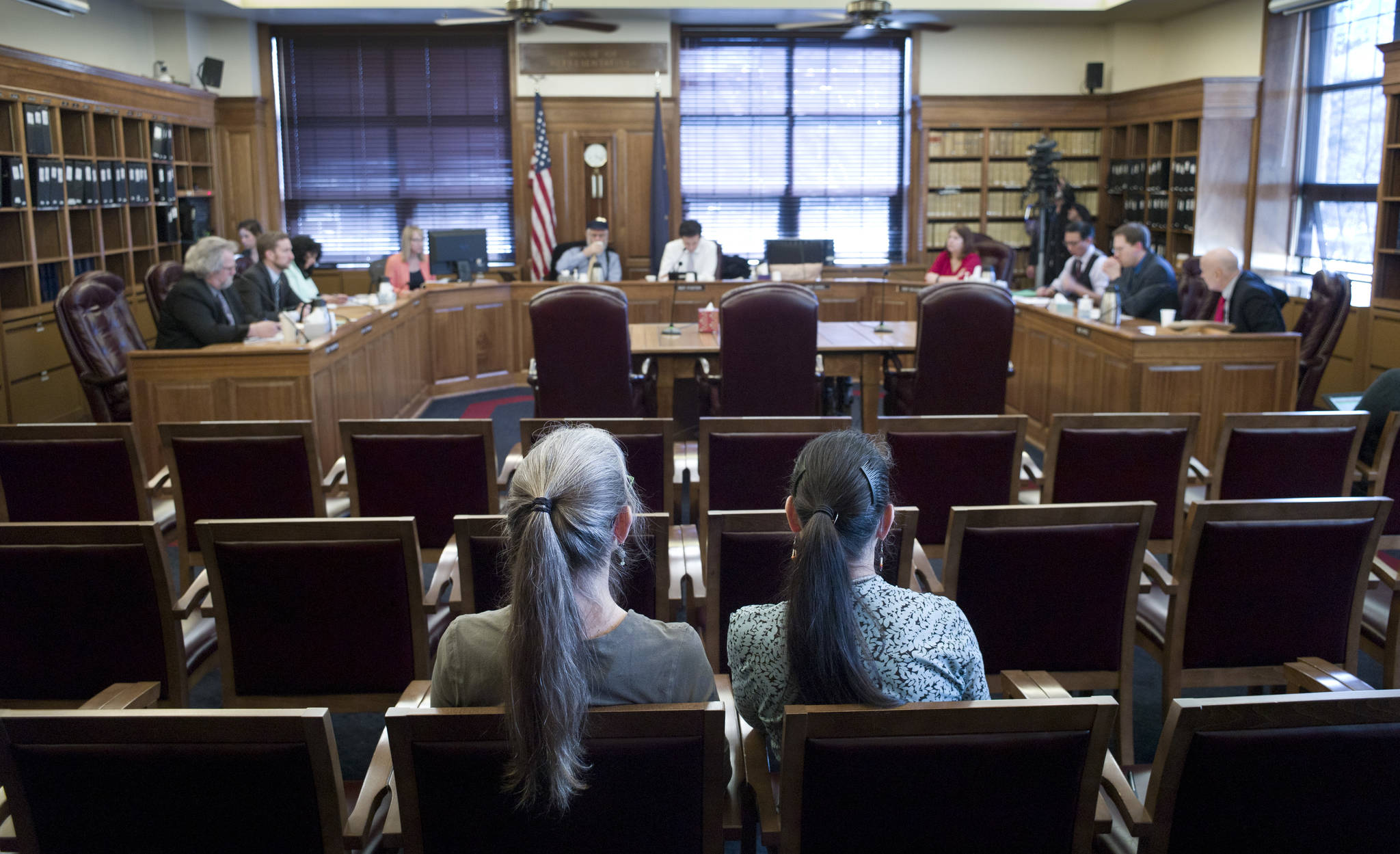A microphone can be a scary thing.
Each year, thousands of Alaskans call or visit the Alaska Legislature to offer their thoughts on a piece of legislation. The topics vary as much as the speakers do, but the procedures for public testimony are universal: Everyone gets their two minutes to speak directly to lawmakers with no censor and no intermediary. The comments are sometimes insightful and sometimes profane, but they always give legislators an insight into what Alaskans think of a particular piece of legislation.
Here’s how to make your insight stand out from the rest.
The Empire reached out to longtime Legislative staffers in the House and Senate for their advice on how to give the most effective and useful public testimony. Staffers are the ones who answer the phone and email, and they’re in the committee room when the public speaks up. They also get to see legislators’ reactions behind closed doors, so they know what things make the biggest impact on their bosses. To protect their anonymity and allow them to speak freely, their names won’t appear here.
This is what they recommend:
• Don’t be afraid to speak up. This is the biggest tip of all. You shouldn’t be afraid to say what you think to the Legislature. Not many people give public testimony, and it’s an easy process once you know how to do it. Even if you don’t want to speak in person, an email or phone call goes a long way.
• Know the schedule. You can’t give good public testimony if you don’t know when to give it. The Bill Tracking Management Facility can give you automatic updates on the progress of a bill, including when public testimony is scheduled (https://www.akleg.gov/basis/btmf_login.asp).
• Know who to talk to. If you send emails, you need to know to send them to the members of the committee that has the bill you’re interested in. Know who represents your district as well. Don’t blast an email to all legislators.
• Don’t use a form email. Lawmakers tend to disregard those. Write an individual note, but keep it to a paragraph or two.
• Don’t read from a script. When you give testimony in person or by the phone, try not to read from a script. It’s pretty obvious and legislators are more likely to tune it out.
• Be clear about whether you support or oppose a bill. Meandering testimony makes it harder for legislators to figure out whether you like the bill or not.
• Have a good introduction. Say your most important thing first.
• Be specific. If you don’t like a piece of legislation, explain which part of that bill you detest. Identify the section, and explain why. If you like a bill, say which section helps you. Tie it to your own experience. It’s much more memorable and compelling that way.
• Don’t talk feelings. Everyone has an opinion and a feeling; you need to explain why a particular piece of legislation affects you personally and why you care. Your feelings will show in the story you tell; you don’t need to say them out loud.
• Acknowledge your legislator. If your representative or senator is on a particular committee, make sure you acknowledge that when you testify.
• Feel free to bring your kids. Parents sometimes shy away from giving public testimony because they don’t have child care. It’s OK to bring your kids with you to the Capitol.
• Stay away from profanity. You might be fired up about a particular thing, but if you swear, legislators will dismiss you as a kook.
• Be brief. If Abraham Lincoln can deliver the Gettysburg Address in less than three minutes, then you can do the same. Don’t say “I will be brief” — just do it.
• Contact state reporter James Brooks at 523-2258 or james.k.brooks@juneauempire.com. Follow him on Twitter at @AK_OK.

